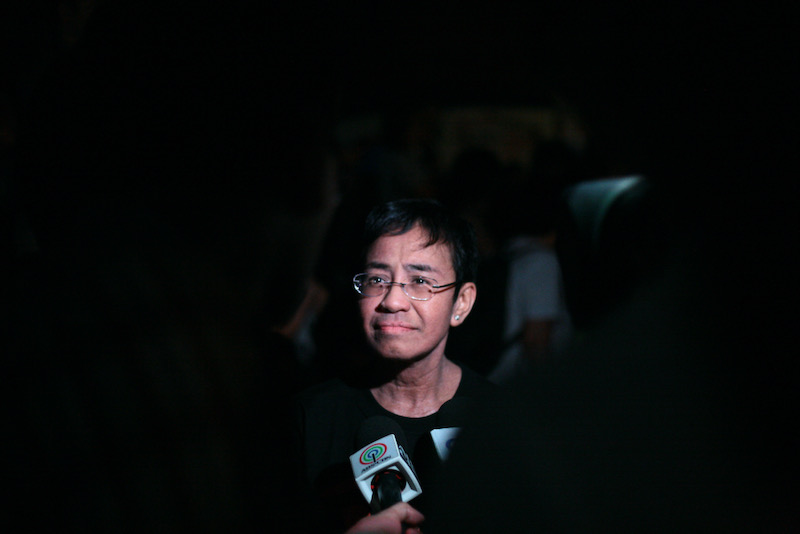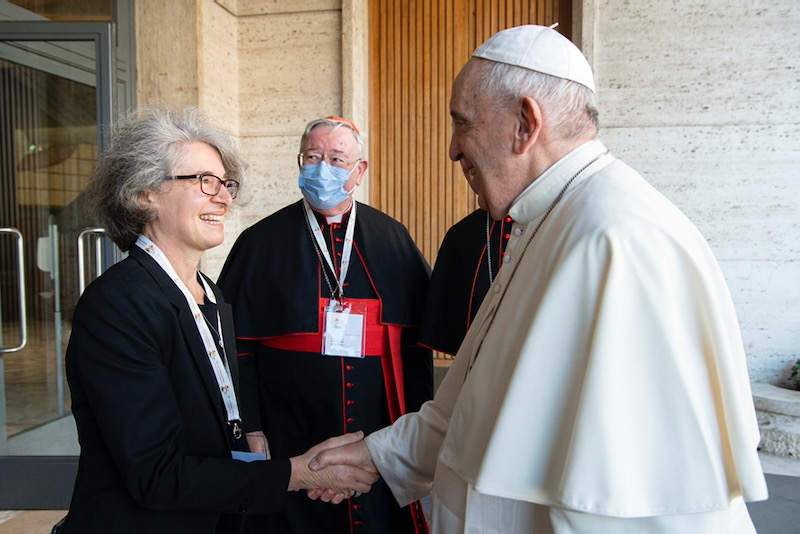Pope Francis fired the starting gun on the most ambitious Catholic renewal project in 60 years by warning against the Church becoming a “museum”.
Speaking at the beginning of a two-year synod process in the Vatican, the 84-year-old Jesuit Pope called for a “different Church” which is able to listen, becomes immersed in people's lives and avoids the “poison” of complacency.
“Keep us from becoming a ‘museum Church’, beautiful but mute, with much past and little future,” the Pope told the synod gathering at the Paul VI synod hall in the Vatican.
Francis was speaking at the start of an unprecedented listening and consultation exercise taking place across the 1.3 billion-member Church. Although the process is set to last two years significant potential changes were suggested that means it is likely to last much longer.
Representatives from the global Church gathered in the Vatican period of reflection on 9 October ahead of the formal opening the next day during a Mass celebrated by the Pope in St Peter’s on 10 October.
Every diocese in the world has been asked to begin with their own synods a week later, which will ultimately set the agenda for the October 2023 Synod of Bishops in Rome, resulting in a final text.
In one significant intervention, Cardinal Mario Grech, the leader of Rome’s synod office, suggested that the final document produced by that 2023 assembly could then be handed to local churches rather than presented to Francis.
The Maltese cardinal floated the idea about whether Catholics across the world, along with their bishops, would discuss and give their “consent” to the final text before it goes back to the Pope.
Lengthening the process of the synod points to the emerging model of the Church as one on an ongoing synodal journey where the discernment process is as important as the final outcome.
Until now synods of bishops, set up to advise the Roman Pontiff, have presented a final document to the Pope who then produces his own text, an apostolic exhortation, in response.
But in 2018 Francis made changes that make it possible for the final document of a synod to become part of the “ordinary Magisterium of the Successor of Peter”, giving it the highest level of authority in the Church.
One Vatican official told The Tablet that the changes set out in 2018 allow for the process which Cardinal Grech outlined.
The “synodal journey” is likely to offer a blueprint for the future of Catholicism which builds on and implements the reforms of the 1962-65 Second Vatican Council.
Synod processes are aimed at moving the church away from an autocratic governance structure to a humbler, more credible institution where all believers have a stake in discerning the Church’s future. It is already opening up discussions over leadership roles for women, sexual teaching but also how the Church can better respond to the post-pandemic world battling social and environmental crises.
Synods have also gathered momentum in countries such as Germany and Australia where clerical sexual abuse crises exposed deep institutional failings. Church leaders in both countries see synods as offering them a roadmap for the future.
But the greatest challenge to Francis’ vision of a more synodal Church is apathy, inertia and resistance from bishops and church officials.
Cardinal Jean-Claude Hollerich, the moderator of the synod, read out a list of “excuses” he’d heard from those who didn’t want to engage with the process.
“It's a good idea, but I don't have time. I have a full agenda. Someone else will have to do it for me. It sounds like a good idea, but it cannot be taken seriously. We know the structure of the church and the truth of its teaching. Isn't this a way to make us swallow changes that have already been decided in advance?” the Luxembourg cardinal explained.
He added that the synod’s listening exercise would be a “huge puzzle” but one that required the “duty of discernment.”
Among those attending the 9 October event were cardinals of the Roman Curia, some of whom are believed to be sceptical or unsure about the process.
Before gathering in small groups, they heard testimonies from across the world. Among them included the recently appointed prefect of the Vatican’s clergy office. Bishop Lazarus You Heung-sik described synodality as an “antidote to clericalism” while Dominique Yon, a female youth chaplain from South Africa, quoted Nelson Mandela: “Vision without action is just a dream, action without vision just passes the time, and vision with action can change the world.”
The synod reform effort seeks to include Christians from other denominations. Those taking part in today’s meeting included Archbishop Ian Ernest, director of the Anglican Centre in Rome. He explained that he was able to share the experience of synodality in the Anglican Communion.
“I think this is a moment of hope for the Church,” he told The Tablet. “It is a process that will bring about a different Church. Not ‘another Church’ as Pope Francis said but a more relational one….my presence here at the synod, and being able to speak, is itself a sign.”
Francis has emphasised the importance of synodality from the beginning of his pontificate saying he wanted to listen to people through genuine, rather than “token”, consultations. Over the last eight-and-a-half years, he has rebooted the synod of bishops structure and made it the primary vehicle for implementing his pastoral agenda. The launch of a global synod including everyone in the Church and beyond is the next step on this process.
The timing of the beginning of the synod was also appropriate given the 9 October is the Feast of St John Henry Newman who argued in favour of consulting ordinary believers in 1859 and is considered to be a father of Vatican II.



 Loading ...
Loading ...